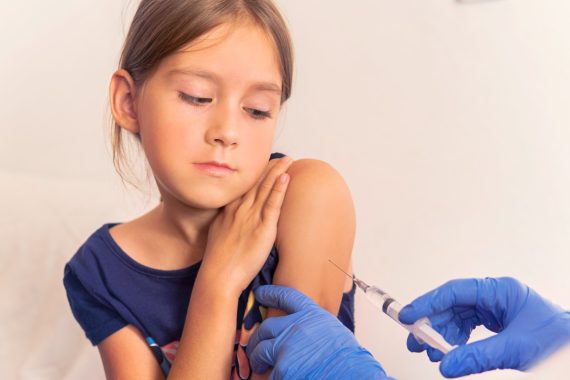England moves to single-dose HPV schedule from September

From September, teenagers and young adults in England will be offered a single dose of HPV vaccination in England, public health officials have announced.
The decision comes after a review of evidence showing that one jab offers comparable protection to the current two-dose schedule.
Scotland has already moved to a one-dose schedule after the Joint Committee on Vaccination and Immunisation advised the change in August 2022.
NHS England said anyone who had missed their HPV jab at school is eligible until the age of 25 and should contact their GP.
Gay, bisexual and other men who have sex with men aged 25 to 45 years will remain on a two-dose schedule, offered through sexual health clinics, the announcement said.
Anyone under 25 years who has already had one dose by the time the new schedule comes in will be considered fully vaccinated, NHS England confirmed.
A report published in December on the routine adolescent HPV vaccination programme for 2021 to 2022 found that coverage in year 8 and year 9 pupils is yet to return to pre-pandemic levels.
Dr Vanessa Saliba, immunisation consultant epidemiologist at the UK Health Security Agency (UKHSA), said: ‘The HPV vaccination programme is one of the most successful in the world and has dramatically lowered the rates of cervical cancer and harmful infections in both women and men – preventing many cancers and saving lives.
‘The latest evidence shows that one dose provides protection as robust as two doses. This is excellent news for young people.’
National director for screening and vaccinations Steve Russell said: ‘With one quick HPV jab now making it simpler than ever to reduce your risk of cancers caused by the virus, it’s so important that people come forward when invited.
‘Along with getting your HPV vaccine, it is also still vital to book in for your cervical screening appointment, which checks for high-risk HPV and remains one of the best ways to protect yourself from cervical cancer.’
Professor Mark Jit, professor of vaccine epidemiology at London School of Hygiene & Tropical Medicine, said: ‘HPV vaccines are even more effective than we originally anticipated when they were first developed, and are already reducing the number of cancers in the UK and around the world.
‘Over the last few years, trials and other studies in several countries have shown that a single dose of the HPV vaccine will also provide that type of robust protection, and the antibodies against HPV that are generated after one dose remain stable over the long-term.’
He added: ‘As JCVI noted, the resources freed up from the move to one dose can be re-directed to strengthening the programme, improving our already high vaccine coverage levels and ensuring that anyone who misses their dose still has other opportunities to receive it.’
Pulse July survey
Take our July 2025 survey to potentially win £1.000 worth of tokens

Visit Pulse Reference for details on 140 symptoms, including easily searchable symptoms and categories, offering you a free platform to check symptoms and receive potential diagnoses during consultations.












